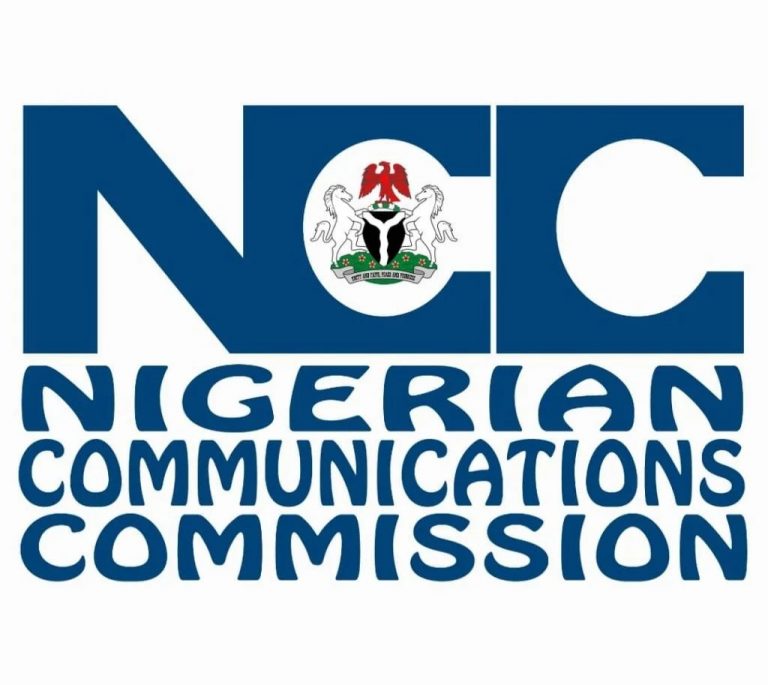Communication
Active telephone lines in Nigeria more than 129 million – NCC
ABUJA – The Nigerian Communications Commission (NCC) has said that active lines in the country’s telecommunications industry increased to 129,391,392 in April.The NCC said in a statement on its Monthly Subscribers Data, published on its website on Saturday that the lines increased by 2,294,196 from 127,097,196 recorded in March.
It added that the Global System for Mobile Communications (GSM) networks service had 126, 958,904 subscribers as against 124,884,842 customers recorded in March, representing an increase of 2,074,062.
According to the statement, the Code Division Multiple Access (CDMA) operators, who had 2,039,391 users in March, added 217,221 as against 2,256, 612 subscribers in April.
The subscribers’ data showed that the Fixed Wired/Wireless networks’ consumers reduced to 172,876 in April, losing 87 of the 172,963 subscribers recorded in March.
The data also showed that the connected lines in the telecom operators’ networks increased from 173,007,027 in March to 177,319,310 in April, increasing by 4,312,283.
The GSM operators were able to connect an extra 4,318,158 to the 168,595,831 lines they had in March, hence increasing their connected numbers to 172,913,989 in April.
The data revealed that the teledensity of the country’s telecommunications industry increased to 92.42 per cent in April, from the 90.78 per cent in March.
The teledensity measures the percentage of a country’s population with access to telecommunications services as determined by the subscriber base.
Nigeria’s teledensity is currently calculated by NCC on a population of 140 million people.
– STAR AFRICA
Communication
Nigeria’s Telecom Market Eyes $11.43bn Value By 2029

In a significant market projection, Mordor Intelligence predicts that the Nigerian telecom sector is set to surge to a value of $11.43 billion by 2029.
The report anticipates a steady growth trajectory with a cumulative average growth rate (CAGR) of 4.70% between 2024 and 2029, based on the current market value of $9.09 billion.
The transformation of Nigeria’s telecom landscape, fueled by government initiatives to boost internet infrastructure and broadband connectivity, coupled with rising data consumption, 5G deployments, and innovative strategies from major telecom players, is expected to drive this substantial market expansion.
The report underscores additional factors propelling the growth of Nigeria’s telecom sector, emphasizing the surge in smartphone adoption.
the report said “Increased smartphone adoption in Nigeria has fueled the development of a dynamic digital services sector. Currently, millions of Nigerians use mobile apps, including social networking sites, e-commerce, and financial services.
“These apps could leverage smartphones’ capabilities to offer speed, convenience, and efficiency, encouraging more people to invest in smartphones.
“In addition to these expansions and collaborations, the growing adoption of digital technologies and government support in aiding the same alongside the 5G technology implementation across the country is analyzed to boost the demand for telecom towers significantly.”
“In addition to these expansions and collaborations, the growing adoption of digital technologies and government support in aiding the same alongside the 5G technology implementation across the country is analyzed to boost the demand for telecom towers significantly.”
Mordor Intelligence highlights that the flourishing e-commerce and digital service platforms in Nigeria are significant drivers behind the escalating demand for dependable telecom services in the country.
Communication
MTN Set To Partially Disconnect Glo Network

The Nigerian Communications Commission (NCC) has granted MTN’s request to partially disconnect Globacom (Glo) from its network owing to unsettled interconnect charges.
Reuben Muoka, the NCC’s Director of Public Affairs, disclosed this in a document named ‘Pre-Disconnection Notice’ on Monday.
The move follows Glo’s persistent failure to clear its outstanding debts despite multiple attempts to resolve the issue.
Under this partial disconnection, Globacom subscribers will solely receive calls from MTN users, while retaining access to other network services like outgoing calls to other networks and data services.
However, they won’t be able to initiate calls to MTN users during this period.
The statement read, “All subscribers are, therefore requested to take notice that the Commission has approved the Partial Disconnection of Globacom to MTN in accordance with Section 100 of the Nigerian Communications Act, 2003 and Paragraph 9 of the Guidelines on Procedure for Granting Approval to Disconnect Telecommunications Operators, 2012.
“At the expiration of 10 days from January 8, 2024, subscribers of Globacom will no longer be able to make calls to MTN but will be able to receive calls.
“The Partial Disconnection, however, will allow in-bound calls to the Globacom network,” it added
Communication
Despite Hardship Nigerians Spent N3.33tn On Calls, Data In 2022

Nigerian telecommunication users, along with others within the country, expended a total of N3.33 trillion on various telecom services such as calls, data, SMS, and more throughout 2022, according to the Nigerian Communications Commission (NCC).
This information comes from the recently published ‘2022 Subscriber/Network Data Annual Report’ by the NCC, which also revealed that telecom companies generated N3.33 trillion in overall revenue for that year.
The report further highlights a noteworthy growth of active voice subscriptions, rising from 195,463,898 subscriptions in 2021 to 222,571,568 by December 2022, marking a 13.86% year-on-year increase.
Commenting on the increase, it said, “The increase in the Operators’ subscriber base was attributed to a number of reasons which includes subscriber loyalty, promos, seasonal effects, aggressive consumer acquisition drive, and competitive product offerings across all the networks.”
It noted that the growth in active subscriptions impacted positively on other derived telecom indicators such as teledensity, Internet penetration as well as broadband penetration.
Data usage also continued its surge in 2022. It increased by 46.77 per cent to 518,381.78TB as of the end of the year.
The NCC stated, “There was an increase in the volume of data consumed at the year-end December 2022 when compared with the year-end December 2021.
“The total volume of data consumed by subscribers increased to 518,381.78TB as of December 2022 from 353,118.89TB as of December 2021. This represents an increase of 46.77 per cent in data consumption within the period.”








